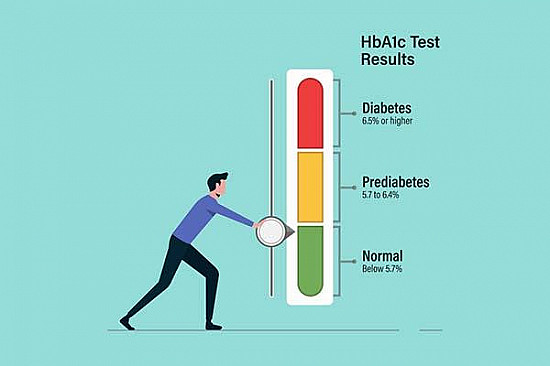Weighing the dangers of extra weight
Carrying a few seemingly innocent pounds invites serious health risks.
- Reviewed by Howard E. LeWine, MD, Chief Medical Editor, Harvard Health Publishing; Editorial Advisory Board Member, Harvard Health Publishing
 An estimated 70% of adults in the United States are overweight or obese based on body mass index (BMI), a calculation that takes into account both height and weight.
An estimated 70% of adults in the United States are overweight or obese based on body mass index (BMI), a calculation that takes into account both height and weight.
Standard definitions consider a healthy BMI as between 18.5 and 24.9, overweight as 25 to 29.9, and obese as 30 and higher. (Calculate your BMI using this online tool.)
While far from perfect, BMI offers a simple gauge of whether someone's weight might pose a problem. Studies have found that a BMI higher than 25 increases your risk for heart disease, diabetes, and some types of cancer.
But what if you have put on only a little extra weight in recent years — say, five pounds or so — and your BMI doesn't fall into the category of overweight? Is that still cause for concern?
"Any excess weight can pose a health risk and affect one's daily life," says Dr. Walter Willett, professor of epidemiology and nutrition at the Harvard T.H. Chan School of Public Health. "When you carry extra pounds, you also are more susceptible to joint pain, low energy, and problems sleeping."
Yet the greatest threat is the potential for gaining even more weight. "It's easy for five pounds to quickly turn into 10 pounds and then 15 pounds, and as the weight increases, so do the health risks," says Dr. Willett.
Why do you gain weight?
It's common for men to gain some weight with age. Metabolism naturally slows, and lean muscle mass steadily declines, both of which cause the body to burn calories at a slower rate. In addition, most men consume more daily calories than they need." When you take in extra calories and don't burn them off, they will be stored as fat," says Dr. Willett.
But where you accumulate that extra fat is the real issue with weight gain.
Based on its location, fat can be described as either subcutaneous or visceral. Subcutaneous fat is located just under the skin. Visceral fat lies deep within the abdominal cavity and pads the spaces between your abdominal organs.
Of the two, visceral fat is more dangerous, as high amounts are linked with heart disease risk factors like high blood pressure, elevated blood sugar, and high cholesterol levels. Do you have too much visceral fat? Check your waist size. "For men, a waist of 40 inches or more is considered a sign of excess visceral fat," says Dr. Willett. "But even a small change in your clothing, like pants that now feel snug or having to change notches in your belt, are signs of increasing visceral fat."
What is your ideal weight?
There's no one-size-fits-all number for a person's ideal weight. The number depends on age, genetics, body frame, medical history, and average weight as a young adult.
"Your BMI can offer a clue about whether you need to lose excess weight, but consulting with your doctor can help determine your ideal healthy weight range," says Dr. Willett.
Still, you should not ignore even small weight changes. "A little weight gain may seem normal for many men, but that doesn't mean they should accept it and not do anything about it," says Dr. Willett. "It's easier to make modest adjustments now than to wait until you gain a lot more weight."
You can turn back those extra pounds with a combination of aerobic exercise, strength training, and a healthy diet.
Experts recommend at least 30 minutes of moderate-intensity aerobic exercise (for example, brisk walking, running, swimming, or cycling) most days of the week, plus at least two weekly weight or resistance training sessions to maintain muscle mass and strength. To avoid putting on more pounds, stick with a diet that prioritizes plant-based foods, like the Mediterranean or DASH diet.
Image: © Tetra Images/Getty Images
About the Author

Matthew Solan, Former Executive Editor, Harvard Men's Health Watch
About the Reviewer

Howard E. LeWine, MD, Chief Medical Editor, Harvard Health Publishing; Editorial Advisory Board Member, Harvard Health Publishing
Disclaimer:
As a service to our readers, Harvard Health Publishing provides access to our library of archived content. Please note the date of last review or update on all articles.
No content on this site, regardless of date, should ever be used as a substitute for direct medical advice from your doctor or other qualified clinician.
















